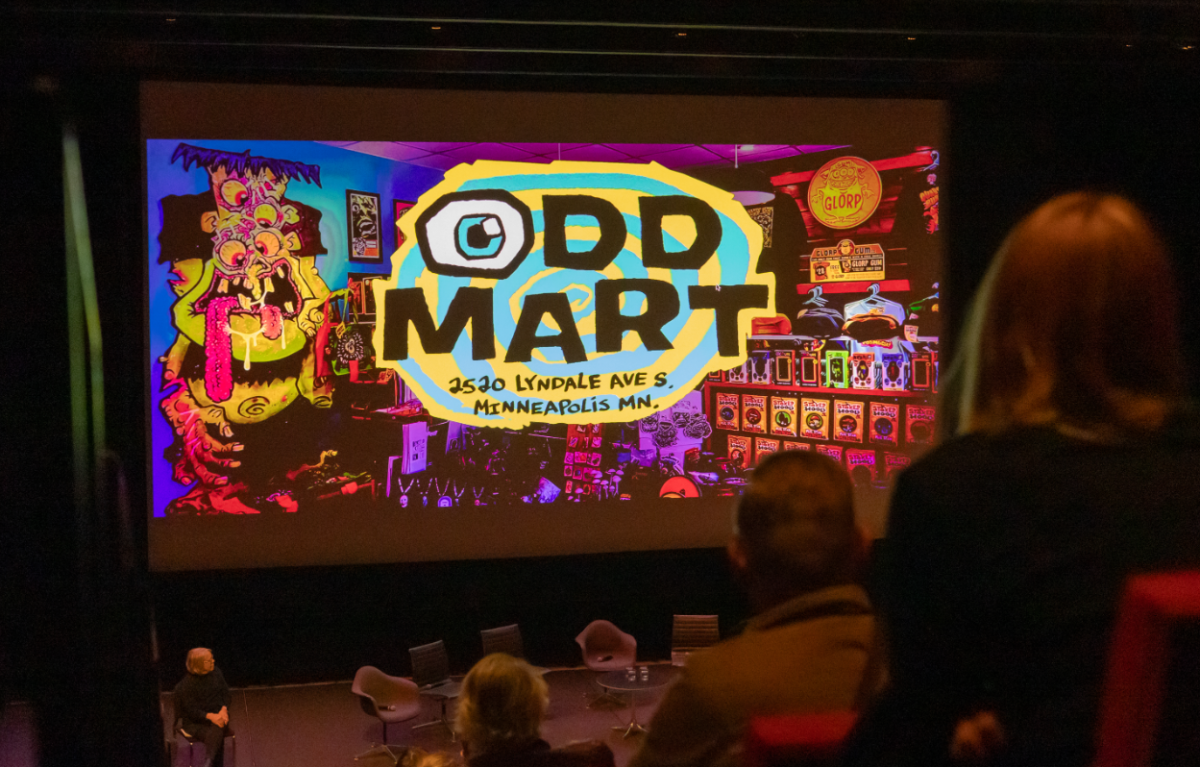There are those who flip through the newspaper to find the editorial page, hungry for provocation and insight. Then there are those who toss the editorial and news sections aside in a frantic hunt for the funny pages.
“Sutton Impact: The Political Cartoons of Ward Sutton” is definitely not for the latter.
Ward Sutton, weekly contributor to New York’s Village Voice, as well as numbers of other publications, is an angry and passionate voice of dissent in a time of increasing discord.
His purpose can partially be defined by one of his own drawings, found on page 103.
Here, he reconstructs Grant Wood’s famous painting, “American Gothic,” turning the farmer and his wife into more embittered political rivals. Amid buttons reading, “Regime change begins at home” and, “Hate is not a family value,” the woman’s shirt now reads “Keep your laws off my body!”
Next to “I love Fox News” and “Freedom ain’t free,” the man’s shirt displays an American flag and proclaims “Burn this, asshole!”
As William Shakespeare might say today, now is the summer of our discontent, and Sutton clearly considers himself one of the leading advocates
of the discontented. In “Sutton Impact,” he starts at the dawn of the 21st century and systematically works his way through the prominent U.S. political contradictions, controversies and hypocrisy leading up to present day.
Given the conservative swing of the United States during this span of time and the current administration mandating the national agenda, Sutton’s pieces can’t help but target Republicans, conservative policies and the politics of the Bush administration.
Those enthusiastic about the current occupation of Iraq or who think our country is doing just fine in 2005 will be put off by most of Sutton’s opinions, though he occasionally takes aim at Democrats and bigger social issues with equal vitriol.
Amid his hundreds of comic strips, his topics of choice seem to be patriotism, contradictions and positions of authority.
He calls out Democrats, seeing weakness in their fear to confront their opponents. He attacks members of the Bush administration, who he sees using euphemisms and buzz words to obscure their real intentions. He sees President George W. Bush, his adviser Karl Rove and his upper cabinet as the instruments through which this immorality has been permitted and encouraged.
Granted, the collection becomes a bit stale when dealing explicitly with timely issues. While it was surely poignant at the time, a short series on the 2004 Democratic presidential nomination doesn’t quite hit the mark anymore.
One additional weakness, albeit slight, is Sutton’s limited visual style. While he proves exceptional in conveying understatement and paradox in some works, most strips and portraits rely on lengthy texts, not pictures.
Still, “Sutton Impact” is an angry and compelling counterpoint to the popular rhetoric of today’s monotone political machine.
His introductory rallying cry, much like his larger body of work, is sure to connect with anyone fed up with today’s lack of public dissent: “This isn’t a movie. I’m not alone. You’re not alone. Thanks for reading.”







